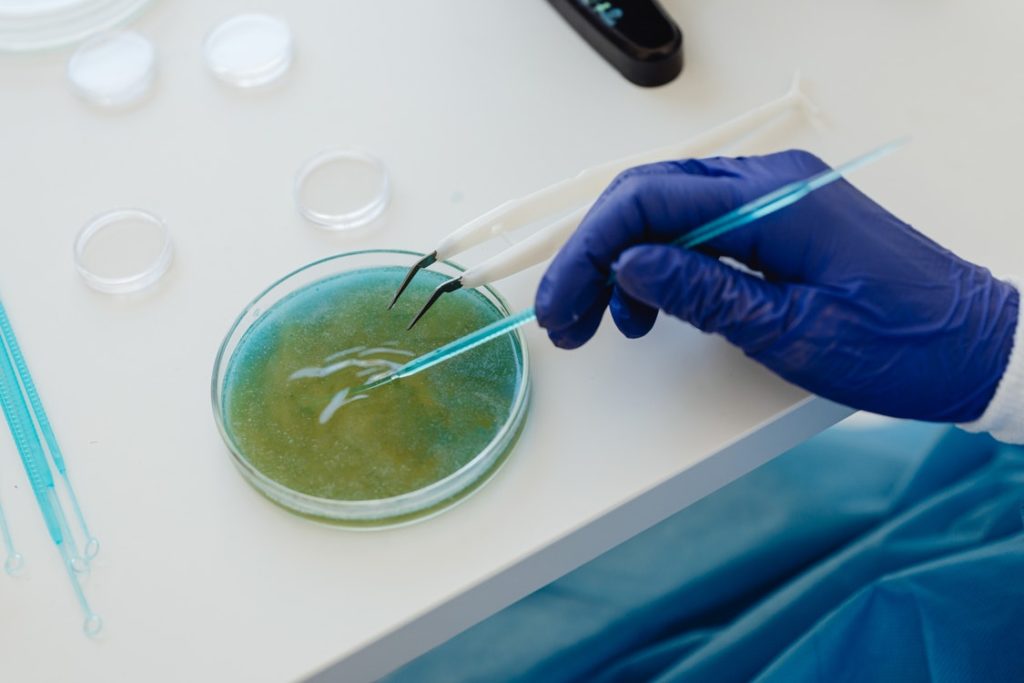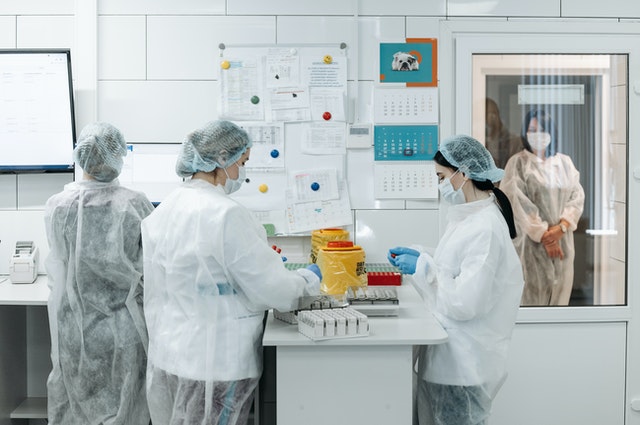
There are many tips for protecting your gut health. Experts recommend filling your shopping cart with plant foods such as whole grains, legumes, nuts, and seeds. Aim to eat at least 30 servings of plant foods per week. If you do not consume enough plant foods, the problem can persist and can become more serious. To prevent and treat these issues, you should make the switch to a healthier lifestyle. This article will cover some of the most important tips for protecting your gut health.
Prebiotics
A diet rich in prebiotics can help maintain a healthy microbiome, the bacteria that live in your gut. While prebiotics is not a replacement for a well-balanced diet, they can help stimulate the growth of the beneficial bacteria. You can include prebiotic-rich foods in your daily diet without much hassle. For example, adding beans and whole grains to your daily meals is a good idea, as discussed on SF Weekly Seed.
Many foods contain natural prebiotics, such as FOS and GOS. GOS is found less frequently in breast milk and fermented dairy products. However, many processed foods now contain added prebiotics. These substances are used by the bacteria in your large intestine to break down the fibers in the food and reproduce. These good bacteria help protect your gut health and help you feel more energetic. But how can you get prebiotics in your diet?
One of the easiest ways to get a healthy dose of prebiotics is by eating foods high in fiber. Foods rich in prebiotics include asparagus, chicory root, raw dandelion greens, bananas, and whole wheat. Fermented foods are also good sources of prebiotics, such as yogurt, sauerkraut, and water kefir. Avoid red meat and high-fat dairy products, as they will increase the growth of bad bacteria.
Fermented Food

There are many benefits of fermented foods. They contain beneficial microorganisms that help enrich the nutritional content of food. The microbes in fermented foods break down the components of food and can even increase their nutritive value. The fermentation process also helps reduce the glycaemic index of food by decarboxylating polysaccharides and fats. All of these benefits can be achieved by adding fermented foods to your diet.
Fermented foods contain live and active microorganisms known as LAB. The bacteria in fermented foods are present at very low levels in the intestine. However, the LAB in fermented foods reach concentrations higher than those found in the fecal metagenome, suggesting that they could help protect the gut. Fermented foods may also act as a type of alternative medicine. While there is still much research to be done, it’s clear that they’re an excellent way to enhance your health.
Another benefit of fermented foods is that they contain probiotics, which are beneficial microorganisms that help improve the health of the GI tract. These bacteria are believed to be responsible for helping people cope with gastrointestinal disorders, reduce anxiety, and prevent the onset of several diseases. Fermented foods such as yogurt, sauerkraut, kimchi, miso, and kombucha are excellent sources of these healthy bacteria and may help prevent colon cancer.
Acidity
Acidity can cause a host of other problems, from joint pain and bloating to immune system dysfunction and mood swings. Fortunately, there are ways to protect your gut health and prevent the ill effects of acidity. By incorporating more fiber into your diet, you can improve the balance of good bacteria in your gut and protect yourself from the effects of acidity. Here are a few ways to do this.
Bacteria are a natural part of our gut, and ninety percent of our body is made up of them. While some are harmful, the majority of bacteria are beneficial. Good bacteria help maintain the correct balance of acidity in the gut, deter pathogens, and promote the growth of commensal bacteria. When we eat foods that are rich in saturated fat and high in sugar, our gut’s microbial population becomes imbalanced. This can lead to a variety of diseases, from mild to severe.
Eating whole, unprocessed food and fiber-rich vegetables and fruits is an effective way to improve your gut health. Eating probiotics and digestive enzymes, reducing stress, and consuming plenty of fiber is also important. If you’re worried about your gut health, it’s worth talking to your primary care physician to find out more about what you can do to improve your health. If you suspect that you have a problem, your physician will refer you to a gastroenterologist to help with your condition.
Dietary Fiber
Many packaged foods contain misleading information about the nutritional benefits of dietary fiber. While most breakfast cereals are considered a whole grain, this label doesn’t tell you the truth. In reality, only 30 percent of them are. The best way to get your recommended daily intake of fiber is to eat a variety of plant foods, such as whole-grain bread or cereals, and beans and lentils. Aim for at least 25 grams of fiber a day, but you can add fiber-rich foods to your regular diet to increase your intake.
Fiber comes in two forms: soluble and insoluble. Soluble fibers break down into gels, which slow down the digestive process. Most soluble fibers are fermented by the bacteria in the gut, while insoluble fibers retain their original form. Insoluble fibers act as roughage, bulking up the stool and slowing the digestion process. Your body’s recommended daily intake of fiber depends on your age and gender.
Fiber also acts as an energy source for the microbiota. Certain dietary fibers activate specific microbial machinery in the gut. This helps the microbes to produce short-chain fatty acids (SCFAs), which regulate the immune system. They also help in reducing blood pressure. For this reason, a high-fiber diet is often prescribed for hypertension patients. So, what’s the link between dietary fiber and blood pressure?
Antibiotics
Antibiotics can have many negative effects, including affecting your gut microbiome, which is composed of a variety of bacteria that help break down food. Antibiotics can alter the balance of these single-cell organisms and weaken your immune system. Two common classes of antibiotics, tetracyclines, and macrolides wipe out substantial amounts of good bacteria in the gut. These antibiotics are prescribed for a variety of infections, including skin and respiratory infections, soft issues, H. pylori, and sexually transmitted diseases.
There is a concern about the overuse of antibiotics, however. Although antibiotics are essential for fighting infectious diseases, over-prescription can have undesirable side effects. Broad-spectrum antibiotics, which kill multiple kinds of bacteria, are typically prescribed to treat more serious conditions. Moreover, these antibiotics may destroy beneficial gut bacteria. Insufficient amounts of good bacteria can result in an epidemic of antibiotic resistance. Thus, it is important to choose antibiotics wisely.
Researchers have found a way to protect the gut microbiome from the effects of antibiotics. This technique has the potential to protect the gut microbiome while preserving the efficacy of the antibiotic. In a study involving mice, scientists studied the beta-lactamase gene, which is a type of bacteria found in cheese and other foods. Researchers noted that mice that received engineered bacteria were not susceptible to opportunistic C. difficile infections. The bacteria in the mice that received antibiotics did not show such a change.
Fecal Transplants
The idea of fecal transplants is not new. The practice dates back to ancient Chinese medicine and involved drinking a liquid suspension of someone else’s feces. Although some studies suggest that fecal transplants can help to restore gut health, the practice itself is not yet safe. In fact, there is a growing body of evidence against the practice. Read on to learn why fecal transplants aren’t safe for most people.
One way to evaluate the efficacy of fecal transplants is to compare them to other types of treatments. In some cases, fecal transplants protect gut health and improve the patient’s quality of life. But which transplants actually work? And which ones are best for you? Here are some reasons why:
Fecal transplants contain the original microbiota of the patient and are therefore considered more beneficial than probiotics. This is because these fecal transplants contain the original gut bacteria, as well as bile acids, proteins, and bacteriophages. A human trial has shown that fecal transplants improve insulin sensitivity and are superior to other treatments, such as antibiotics. However, they do have the potential to cause serious side effects and may not be appropriate for everyone.
White Tea
Teas have health benefits for our gut. White, green, and black tea contain polyphenols, which support the growth of the gut microbiome and the diversity of gut bacteria. These beneficial bacteria convert polyphenols into beneficial compounds that protect the intestines from damage and inflammation and even help guard against cancer. Polyphenol-rich foods are a good choice for the microbiome, as they promote a healthy colon environment.
Polyphenols found in tea are powerful antioxidants. They protect the body from free radicals, which are responsible for the aging process and several illnesses. The polyphenols found in tea have a special affinity for the cell walls of yeast, which promotes their bioavailability and anti-inflammatory activity. The best way to get the most from polyphenols is to drink white tea. Besides the antioxidant benefits, white tea also has other health benefits.
Researchers have concluded that white tea may improve insulin and blood sugar levels. A February 2015 study showed that daily consumption of white tea improved insulin sensitivity and glucose tolerance. More studies are needed to determine whether these findings apply to humans, but promising test-tube studies have shown that drinking white tea may protect your gut from cancer. The tea’s high levels of EGCG may be important in this regard, as these compounds combat free radicals.
